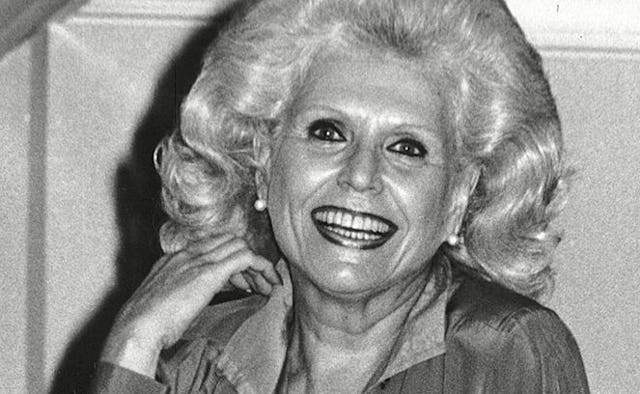Weight Watchers Founder Jean Nidetch Dies at 91

She incorporated in 1963, combining smart nutritional information, healthy eating practices and, most of all, supportive community into a weight loss plan, and Weight Watchers membership hit five million by 1968. Nidetch became a celebrity, complete with best-selling books and TV appearances on Johnny Carson and Merv Griffin. Weight Watchers’ 10th anniversary was celebrated in Madison Square Garden with 16,000 people, including Bob Hope and Pearl Bailey. H.J. Heinz ultimately bought the company in 1978 for $71.2 million … basically, a million for every pound she’d lost.
I’ll tell you something about Weight Watchers: it works. I am skeptical of fad diets, I don’t adapt well to deprivation, and I consider eating delicious food to be a life pleasure that should be celebrated instead of condemned. Liking food should be joyful! Nidetch, who herself had a weakness for Mallomars (and used to hide them in her laundry hamper) knew that, but she also knew the dangers of food as consolation and comfort, so she developed her program to address the psychological and emotional side of overeating instead of just the physical. Don’t we all know that we should eat healthy food in moderation, and exercise? Her weight loss revolution included the essentials, but combined them with an essential ingredient: community.
I did go to a Weight Watchers meeting once, and I’ll tell the truth: I didn’t like it. I definitely didn’t want to weigh in with other people watching, I didn’t want to hear people’s serious sob stories about their food struggles, and it was all too drama-infused for me. It turned out my successful community was online, with a group of sarcastic, edgy women who could laugh at our devotion to grilled cheese sandwiches and french fries, and lament that you couldn’t lose pounds (or acquire extra points) for each treat you almost had, but turned down. I lost 40 pounds, started exercising regularly, and began thinking about food in a whole new way.
The program has changed over the years, modernizing both its nutritional guidelines and its use of technology; you can now scan food labels with your smartphone to get the WW point count and get exercise points for using the Wii Fit Plus. But its heart was in its community of understanding people, who stopped making pariahs out of the overweight population, creating a safe place for them to share their struggles.
There’s an interesting and perhaps unfortunate post-script to Nidetch’s story, in that she apparently didn’t keep her millions. According to her obituary in the Los Angeles Times, she “retired to a one-bedroom apartment at an unpretentious retirement community northwest of Fort Lauderdale.”
“I’m not a millionaire anymore,” she said in her 2009 autobiography, but there’s no question she lived a very rich life, and a good, healthy long one.
This article was originally published on